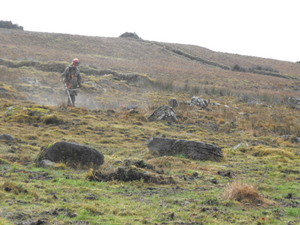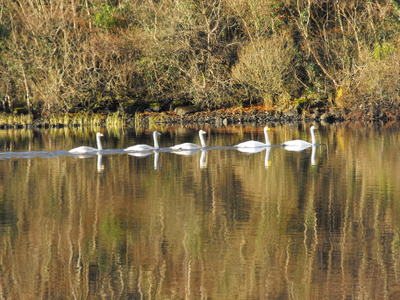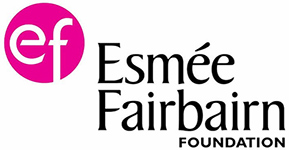Hello Everyone
This is my 2nd blog coming from the shores of Lough Erne in Northern Ireland. My apologies for the scarcity of blogs on my Wetland Reserve Management Apprenticeship, I have been incredibly busy since I started back in November.
I’ll start by giving you all an update on what sort of daily activities I’ve been getting up to and the types of training I’ve been tackling since December. I have been out working on the reserve everyday, come rain, snow and well more rain! The aim of the management on the reserve is to create suitable breeding habitat for 4 target wetland bird species. The key species we actively manage for are Curlew, Lapwing, Snipe and Redshank.
PRACTICAL MANAGMENT
The months of January and February are designated the ‘strimming months’ on the reserve. This is simply because it is the best time to undertake this activity to create the desired effect before the birds begin to select nest sites in March. The aim of the strimming is to cut the vegetation down close to ground level to create suitable breeding areas for Lapwing. I have assisted with the strimming on 4 islands: Hare, Horse, Cruninish and White Island south. Next month I’ll be hiking up Aghatirourke, which is an RSPB reserve of blanket bog on Cuilcagh Mountain, Global Geopark. The aim of the strimming on Aghatirourke is to cut large areas of rank grass to create suitable breeding sites for another wading bird species, the golden plover.

CENSUS & SURVEY
In January I assisted with the International whooper & bewick swan census. I visited sites in Fermanagh and Donegal along with Fermanagh’s RSPB warden, to assess numbers of individuals and juveniles birds. I must admit it was challenging as the birds can be some distance off and mixed with Mute swans who weren’t targeted by this survey.
On a monthly basis I undertake a WeBS count in the wildlife refuge on Lower Lough Erne with my mentor. This is a survey of wetland birds, were the data collected is forwarded to the BTO who collate all the data and produce population trends and analysis of wetland bird species. We try and take out the RSPB boat on a day which is most conducive to bird survey work, so calm, dry with preferably good light conditions. In addition to the WeBS count I am fortunate to be able to give my services to the IWeBS count. This count is taken along the Donegal coast and is run by our Irish counterparts, Birdwatch Ireland. I am still travelling along on the greenland white fronted geese surveys on the Pettigo plateau and Macnean survey areas.

Photo: Ross Watson: Whooper Swan family on Lough Erne
TRAINING
Health & safety plays a big part in our work on the reserve as daily activities can range from transporting livestock, boat handling and off road driving. I was able to grab a space on a Health and Safety for Managers course being run by RSPB NI. It was a great insight into the importance of working safely and responsibly at work. Making sure risk assessments are undertaken, up to date and adhered to, significantly reduces the likelihood of an accident at work.
I was delighted to find out the RSBP were sending me on the RSPB Experience! This involved spending a couple of days in Sandy, Bedfordshire last week at The Lodge (RSPB UK headquarters). It was a 2 day course designed to welcome new staff members into the organisation and familiarise them with RSPB policy, structure, international operations and a range of other exciting areas. It was thoroughly enjoyable as well as productive.
I attended a Pesticide & chemical spraying course yesterday in preparation for late summer spraying this year of re-growth such as bramble. This technique reduces the re-growth to a manageable level for removal the following year. It is usually included in most job specifications for assistant warden positions, so I thought now was a good opportunity to get qualified.
Although I work on a non promotional reserve, meaning we don’t actively encourage visitors. I took a Child Safety and Welfare training course in Belfast at the start of the month in preparation for volunteering as an RSPB field teacher starting April. My advice would be if you can receive training in any field, snatch it, as you never know when you might use it in the future!
Thanks for reading my 2nd blog, I’ll update you all soon! Please feel free to get in touch: amy.burns@rspb.org.uk
*My Video blog coming soon*
